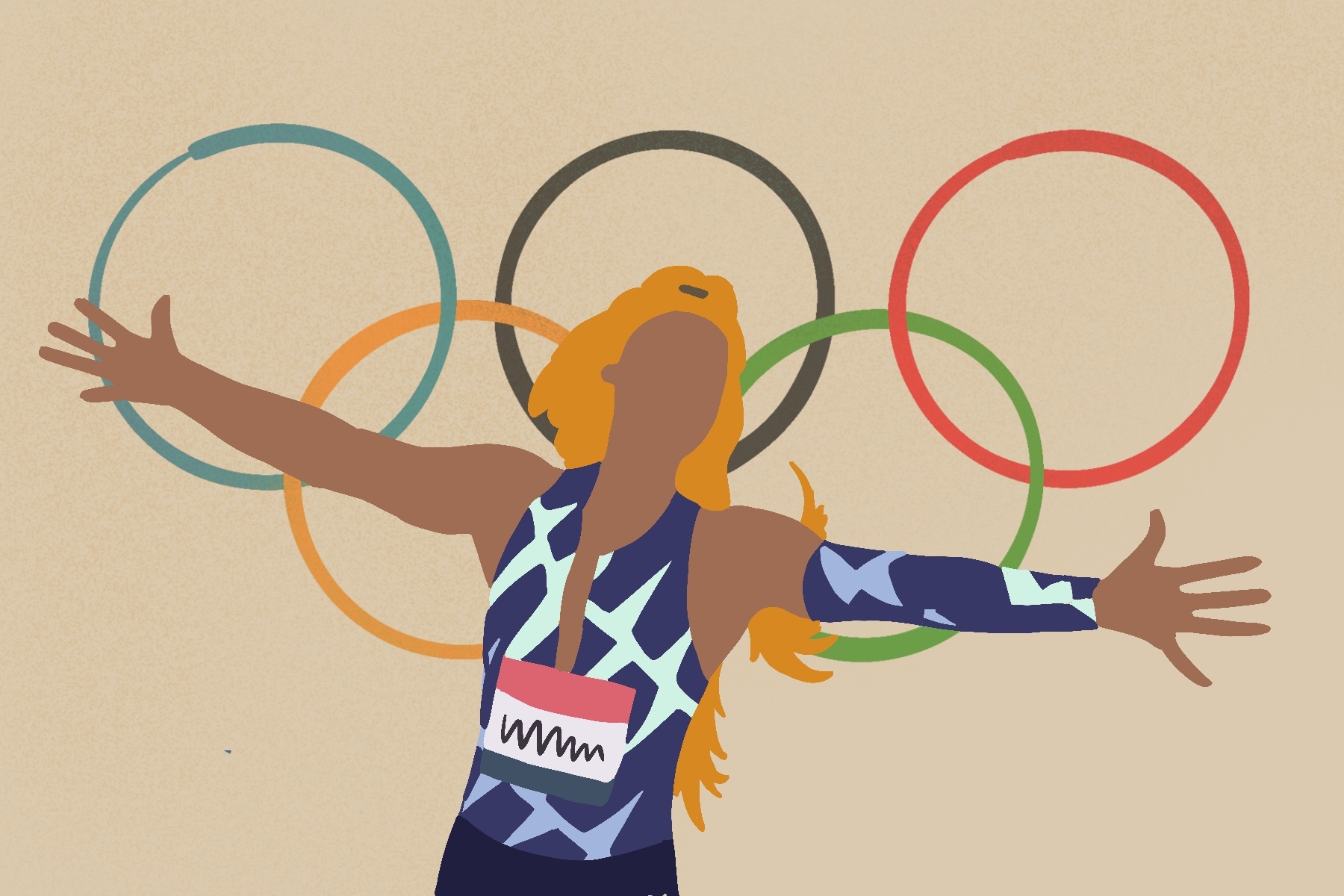Fiery-haired sprinter Sha’Carri Richardson set the sports world ablaze with her exceptional performance in the track and field Olympic Trials. She took first place in the women’s 100 meter final, securing her spot on the U.S. Olympic team. Her athletic fortitude set her up to become one of the greatest sprinters on the planet.
That is, until she was disqualified.
The United States Anti-Doping Agency found marijuana in Richardson’s system and proceeded to suspend her from competition for a month. She was later removed from the U.S. Olympic team as a disciplinary measure. Her removal has since sparked a national debate about the war on drugs, the policing of women’s bodies and systemic racism in sports.
In addition to suspending Richardson, the U.S. track and field team has deemed CeCe Telfer, a trans hurdler, ineligible for competition due to her testosterone levels exceeding the limit set for female Olympians in her event. This disappointment comes at a particularly high cost, given the current legislative attack on trans athletes — especially trans women — in sports.
As a final blow, FINA officially banned the use of Soul Caps, or swim caps designed specifically for natural black hair. According to FINA, Soul Caps do not “fit the natural form of the head” and hence are unacceptable for competition.
A pattern emerges.
At their most basic level, these rulings appear to be nothing more than precautionary measures — rules designed to level the playing field. However, upon closer examination, they seem to have one thing in common: They actively and disproportionately discriminate against Black female athletes. Implicit discriminatory policies have been integral to the Olympics since their founding, but the crucible of the Tokyo Olympic Games has finally brought them under public scrutiny.
I’m sorry, I can’t be y’all Olympic Champ this year but I promise I’ll be your World Champ next year 🤞🏽⚡️.
— Sha’Carri Richardson (@itskerrii) July 4, 2021
Richardson later revealed that she smoked weed to cope with the death of her biological mother. She gracefully accepted her disqualification, admitting that she made a mistake. Richardson broke the rules, and she must accept the consequences. If we contend that the Olympic regulations are justified, the verdict is simple.
If the regulations are justified.
Richardson smoked marijuana in Oregon, where it is fully legalized. Although the World Anti-Doping Agency lists it as a substance of abuse, there is little evidence that it is a performance-enhancing drug. It may be used to help an athlete recover during training, or cope with stress and anxiety. Nonetheless, the same can be said for any number of substances. The term “performance-enhancing” eludes a concrete definition. From a technical standpoint, even Gatorade could be classified as performance-enhancing.
THC has actually been proven to have quite the opposite effect on athletic performance. An April literature review in The Journal of Sports Medicine and Physical Fitness concluded that the consumption of weed “does not act as a sport performance-enhancing agent as raised by popular beliefs.” Richardson is effectively being suspended for a drug that may have inhibited her ability to run. If anything, her use of weed makes her performance all the more impressive.
https://www.instagram.com/p/CNtVtUXnEe1/
Her treatment is merely a byproduct of an age-old system determined to preserve antiquated and Eurocentric ideals of what a woman looks and acts like. Telfer’s plight further emphasizes this. While the myth of the gender binary persists, it has lost traction over the years. Notwithstanding, a significant proportion of the population still upholds the idea of the sex binary. This theory has since been debunked by the scientific community; chromosomal, endocrine and neurobiological inconsistencies create a spectrum of sex characteristics that cannot be cleanly or completely divided into the categories of male or female.
The hurdles that Telfer faces are by no means unique. Two Namibian sprinters, Christine Mboma and Beatrice Masilingi, were recently deemed ineligible for competition due to their unusually high testosterone levels.
The kicker? Both women are cisgender.
All three women were barred from competition for chemicals their bodies naturally produced. According to Olympic officials, their testosterone levels gave them an unjust natural advantage. While this may be a valid concern, there is no way to eliminate this possibility completely. As any athlete can attest, natural physical advantages are inevitable. There is a reason the NBA isn’t populated with 5’4” men.
As they stand, these rulings accomplish little to level the playing field and instead make a clear statement to female athletes — especially Black female athletes. If you don’t fit the subjective and increasingly narrow definition of femininity, you will not be allowed to compete.
Let’s say we ignore the glaring pay gap between men’s and women’s sports. Let’s say we eliminate the ever-present threat of sexual assault at the hands of a doctor or coach. Let’s say we ignore the fact that becoming pregnant can lose you valuable sponsorships.
The hurdles are still numerous enough to bring the best hurdlers to their knees.
Womanhood in sports is marked by moral and bodily standards of perfection. Smoke weed and you’re a bad example. Use a swim cap that protects your hair and you’re a cheater. Have a more muscular build or higher testosterone levels and you aren’t female enough.
Black women already live in a world where their blackness is perceived as a contradiction to their femininity. Female athletes should not be confined by the sexist, cisnormative expectation that their performance is inferior to that of their male counterparts. Defying this expectation should not cost a woman her athletic career.
Athletes like Richardson, Telfer, Mboma and Masilingi will be the best in the world at what they do. They are exemplars of female excellence; they prove that womanhood and victory are complements, not contradictions.
Whether the Olympic committee honors their victories or not.

















